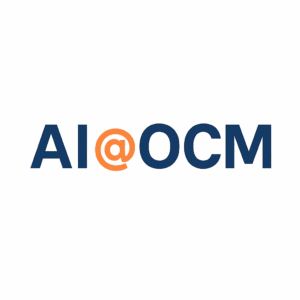In many organizations, structured frameworks for project management (PM) and organizational change management (OCM) are widely acknowledged and theoretically implemented strategies meant to streamline transitions and enhance efficiency. However, despite the clear frameworks established in business theory, there is a significant gap in practical application. Many organizations fail to fully adhere to these methodologies, leading to a series of adverse outcomes that can undermine their overall success. This blog post explores why organizations often neglect these essential frameworks and the potential repercussions of such oversights.
The Discrepancy Between Theory and Practice
Recognition Without Adoption
One of the primary reasons for the discrepancy between the established frameworks and their actual application is the superficial adoption of these practices. Organizations often recognize the need for systematic PM and OCM frameworks and may even invest in training and tools. However, the integration of these frameworks into the day-to-day operations often remains incomplete. This superficial recognition can stem from several factors:
Leadership Commitment: Without strong endorsement and modeling from the top, PM and OCM methodologies can fail to take root across the organizational culture.
Resource Allocation: Implementing frameworks effectively requires both time and financial resources. Organizations unwilling to allocate these resources may find their frameworks are only partially followed.
Resistance to Change: Ingrained habits and the human tendency to resist change can lead to reluctance among teams to adopt new methodologies, regardless of their potential benefits.
Lack of Tailoring to Organizational Needs
Another significant issue is the failure to adapt these frameworks to the specific contexts of the organization. PM and OCM are not one-size-fits-all solutions and need considerable adaptation to fit the unique challenges and culture of any given organization.
The Repercussions of Neglecting Proper Frameworks
The failure to fully implement project management and change management frameworks can have far-reaching consequences for an organization.
Project Failures and Overruns
Incomplete or inconsistent application of project management principles can lead to projects failing to meet their objectives, running over budget, or exceeding their timelines. These failures not only have direct financial impacts but can also decrease team morale and trust in organizational leadership.
Reduced Change Efficacy
Similarly, ineffective change management can result in organizational changes that are poorly received, inadequately implemented, or outright rejected by stakeholders. This can stagnate growth, reduce employee engagement, and lead to a lack of agility in the organization, making it less responsive to market changes or internal crises.
Strategic Misalignment
When project management and change management frameworks are not followed, it can lead to a misalignment between individual projects and the broader strategic goals of the organization. This misalignment can dilute efforts and waste resources, hindering the organization’s ability to achieve its long-term objectives.
Incomplete Project Management Frameworks and Their Impact on Effective Change Management
A robust PM framework is integral to effectively implementing change within an organization. However, when these frameworks are incomplete or poorly integrated, they can severely impact the efficacy of change management processes.
Lack of Cohesive Planning
Incomplete PM frameworks often result in fragmented planning processes that lack coherence and strategic alignment. This can lead to conflicts between various departments and their objectives, making it difficult to implement comprehensive and unified change across the organization.
Poor Risk Management
Effective project management includes proactive risk management, but without a complete framework, organizations may find themselves ill-prepared to handle the unforeseen challenges that changes often bring. This can result in reactive, rather than proactive, management that can escalate crises rather than mitigate them.
Ineffective Communication
A cornerstone of both PM and OCM is effective communication. An incomplete PM framework can result in poor communication channels and structures, leading to misinformation or misalignment during change initiatives. This makes it difficult to gain the buy-in necessary for successful change implementation.
Strategies to Enhance Framework Adoption
Given these challenges and their potential impacts, it is crucial for organizations to not only adopt but fully integrate PM and OCM frameworks into their operations. Here are some strategies to enhance framework adoption:
Comprehensive Training and Support
Organizations should invest in comprehensive training for all stakeholders involved in projects and change initiatives. Additionally, ongoing support and refresher courses can help maintain high levels of competency and adherence to frameworks.
Customization to Fit Organizational Context
Frameworks should be adapted to reflect the specific needs, culture, and structure of the organization. This customization process includes involving stakeholders from various levels of the organization in the framework development phase.
Continuous Improvement
Adopting a mindset of continuous improvement can help organizations refine their frameworks and integration strategies over time. This involves regular reviews and updates to the frameworks based on feedback and evolving organizational needs.
Conclusion
While the reasons for neglecting PM and OCM frameworks vary, the consequences of such oversights are universally detrimental, impacting everything from project success to strategic alignment. By understanding these pitfalls and actively working to integrate tailored PM and OCM frameworks, organizations can significantly enhance their efficiency, effectiveness, and responsiveness to change. This strategic commitment not only supports individual project success but also bolsters the organization’s overall capacity to adapt and thrive in an ever-changing business environment.






